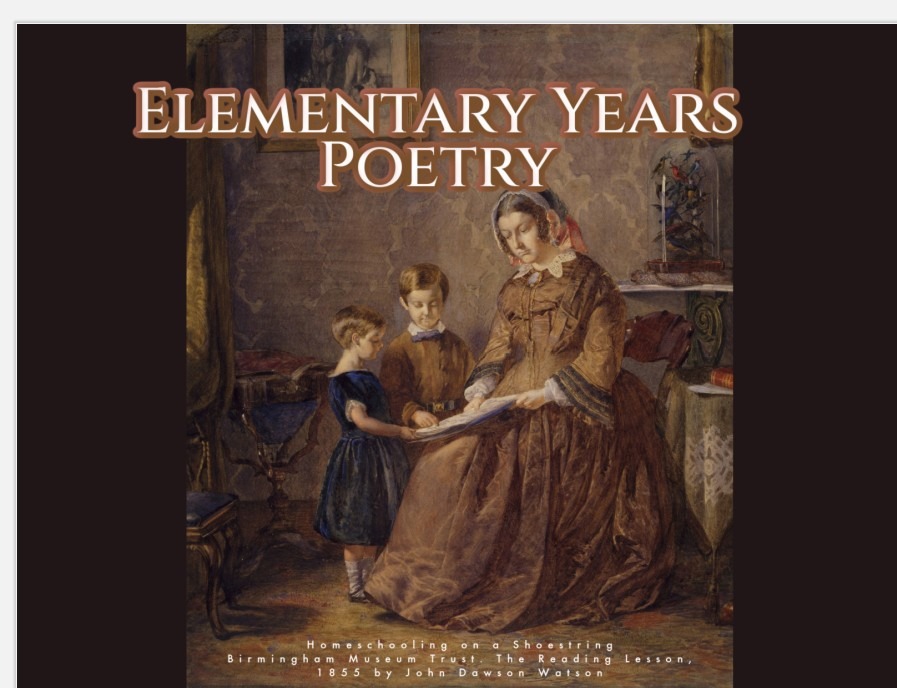
Exploring Poetry with Elementary Students
Poetry offers elementary learners wonderful opportunities to play with language and express themselves creatively. Here are some activities to help kids explore various poetic forms and build confidence in their writing and performance skills.
Exploring Poetic Forms
Acrostic Poems
Acrostic poems are perfect for beginners. Kids can:
- Write their name vertically and create a line beginning with each letter. As a variation, they can use their pet’s name
- Use the unit study name they are currently doing or vocabulary words as the vertical word
- Create seasonal acrostics (SUMMER, FALL, WINTER, SPRING)
Haikus
These three-line Japanese poems teach students about syllable patterns (5-7-5) and observation:
- Take a nature walk together and jot down descriptive words
- Practice counting syllables before writing
- Create illustrated haiku collections about seasons or animals, your backyard or neighborhood
Limericks
These five-line poems with an AABBA rhyme scheme introduce humor and rhythm:
- Read classic limericks to get familiar with the pattern
- Start with fill-in-the-blank limericks before writing original ones
- Challenge family members to write limericks about each other or their pets
Poetry and Music
The connection between poetry and music helps understand rhythm and cadence:
- Set your child’s poems to simple melodies
- Take a favorite song and write new lyrics
- Create chants or raps about daily routines
- Use household items as percussion to emphasize poem rhythms
Poetry Recitation
Reciting poetry builds speaking skills and confidence:
- Start with taking turns reading poems aloud
- Create simple gestures or movements to accompany poems
- Establish a weekly “Poetry Tea Time” where your child can share original or favorite poems
- Record your child reciting poems to share with grandparents or distant family
- Organize small poetry readings with other homeschool families, join or create a poetry club that meets regularly
- Participate in community open mic events or library poetry gatherings
- Prepare for and enter poetry recitation competitions
Family Poetry Activities – Make poetry a family affair. Create a family poetry journal where everyone contributes. Write poems about family trips or special memories.
Community-Connected Poetry – Interview community members and create poems based on their stories. Write poems about local landmarks or historical sites for field trips. Collaborate with senior centers for intergenerational poetry exchanges (good for your poetry club). Participate in community poetry month activities at libraries or bookstores.
Cross-Curricular Connections – Poetry works well across the curriculum. Write science haikus about the water cycle or plant growth. Create math poems explaining concepts like shapes or addition. Compose historical acrostics about famous figures or time periods. Develop poems in other languages they may be studying.
By exploring different poetic forms, connecting poetry with music, and practicing recitation, children gain confidence in their creative abilities and develop a deeper appreciation for language.





